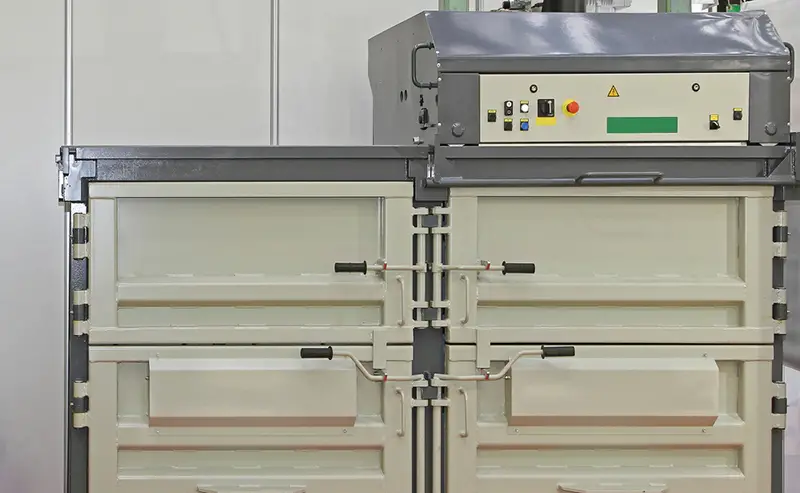Click here to get this post in PDF
In waste management and recycling, the decision to rent or buy a baler is a strategic one that can impact the overall operations of your business. A baler is a significant investment that can influence your business’s financial health, operational efficiency, and long-term sustainability.
Whether you operate a small business with infrequent baling requirements or a large recycling facility with constant waste management needs, a baler is essential for your operations. To determine between renting or buying a baler for your business, you must consider the factors that best align with your business’s objectives and long-term goals.
Financial Considerations
When considering the financial aspect, it’s important to understand the difference in cost structure between renting and buying a baler. Buying equipment is a capital expense, meaning you’ll need thousands of dollars upfront.
Renting a baler is an operational expense, generally smaller and spread over the rental period. This can make it a more viable option for businesses with tight cash flow, start-ups, or those who prefer to keep their capital free from other investments.
Duration of Need
The duration for which you need a baler can significantly influence your decision to rent or buy. Having clear foresight is essential.
Short-term Projects
If your business constantly works on short-term projects or if you have seasonal needs, renting a baler may be the best option. If you run a construction business and need a baler for specific projects, the rental option provides the flexibility to only have the equipment on hand when needed.
Long-term Usage
Purchasing a baler could be a wiser investment if your business consistently generates a large volume of waste that requires regular baling. Owning a baler removes dependency on rental availability and can be more cost-effective over time.
Evaluating Your Business Needs
Understanding your business needs is a very important step in this process. Take stock of your waste management requirements. You must consider how much waste your business generates and how often you need to dispose of it. Choosing the right size compactor that fits your needs will determine performance and safety. This will help you determine the type and size of baler your business requires.
Maintenance and Repair
When you purchase a baler, you are responsible for the maintenance. This implies that routine maintenance, such as oiling moving parts, replacing worn-out components, or scheduled inspections, is part of your operational responsibilities. If the baler breaks down, your business would have to bear the downtime and the cost of parts and labor, which can add up significantly over time.
Renting a baler often includes maintenance and repairs as part of the rental agreement. This means the rental company takes care of the necessary upkeep, scheduled servicing, and unexpected repairs. Not only does this relieve your business of the maintenance burden, but it also ensures that the baler is always in top working condition.
Deciding between renting or buying a baler for your business involves carefully considering various factors. By understanding your business needs, weighing financial implications, considering the duration of need, and considering maintenance and repair responsibilities, you can make an informed decision that best serves your business needs.
You may also like: 6 Ways to Deal with the Solid Waste Generated by Your Business
Image source: Depositphotos.com

